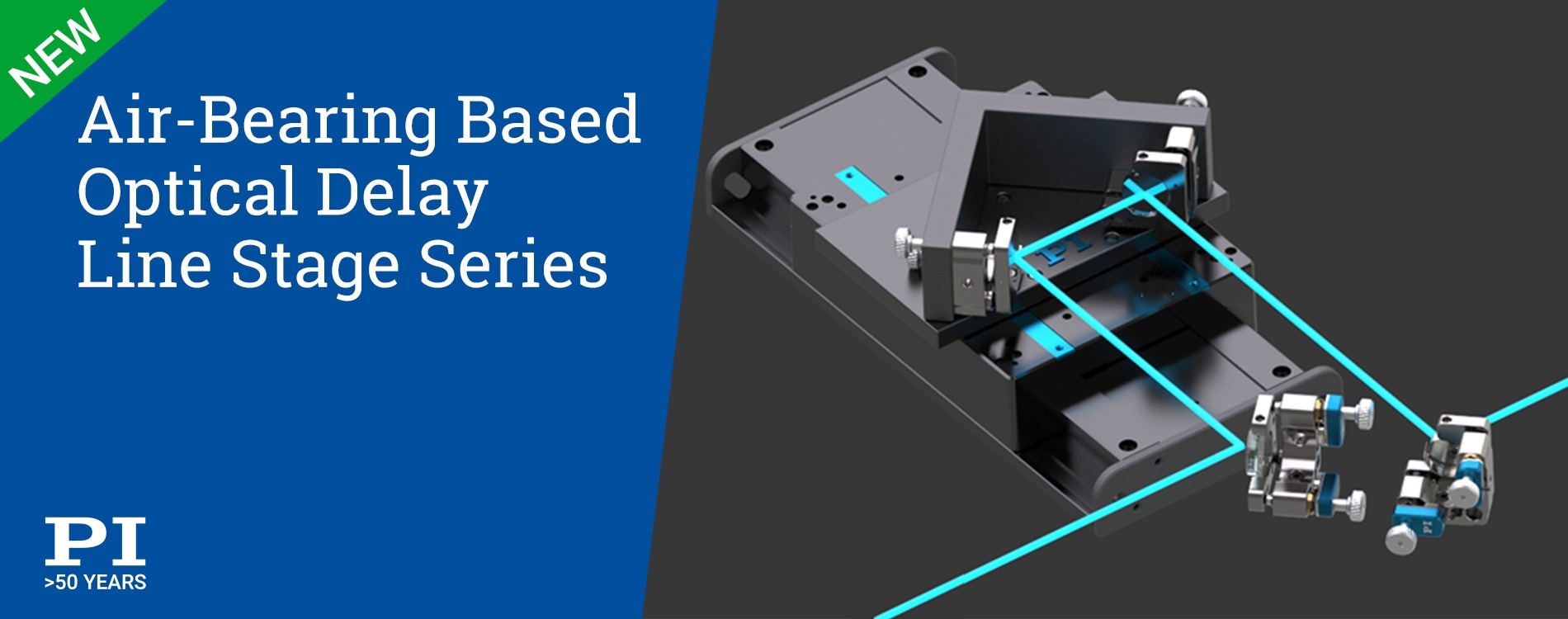Auburn, MA – PI, the global leader in nanopositioning motion control, introduces a series of air bearing-based optical delay line stages. The ADL25 through ADL300 delay lines provide delays from 0.16 to 2 nanoseconds with time resolution down to 0.035 femtoseconds.

Image Credit: PI (Physik Instrumente) LP
Research on ultra-fast processes is continuously gaining importance – it is critical to understand various scientific and technological phenomena, such as chemical and biological processes, molecular dynamics, and quantum effects. The 2023 Nobel Prize in Physics was awarded for research into attosecond pulses of light.
In time-resolved spectroscopy, dynamic processes in materials and chemical compounds can be studied precisely. With the help of ultra-short pulse lasers, changes can be made visible, with time scales down to the attosecond range. Due to the limited speed of light, making the light travel a longer distance to its destination, will change the timing. A precise control in the femtosecond and even attosecond range is made possible by so called delay-line stages. The mechanical precision required for controlling these minute time increments is made obvious, when one considers that a delay of 0.1 femtoseconds is achieved with a positional change of only 14 nanometers.
Historically, delay lines have relied on mechanical bearing linear stages and motion controllers. However, the geometric performance limitations of mechanical bearings can impact the precision of measured results, and velocity constraints may restrict the number of experiments within a given time slot.
Issues, such as straightness and flatness errors, lead to deviations from the beam path, causing shifts in the output beam along the X and Y axes. Yaw errors introduce changes in the incidence angle, further displacing the output beam in both X and Y directions.
In contrast, air bearings present notable advantages over their mechanical counterparts. They exhibit significantly lower pitch/yaw angular errors and near-perfect straightness and flatness. This ensures that, during pumping and probing at different delays, the beam remains at or very close to the Region or Point of Interest. Additionally, higher velocities and quicker settling times facilitate the collection of more data, allowing researchers to conduct up to twice as many experiments – a crucial benefit when faced with limited beam line time.
More information air bearing delay line stages
See a variety of photonics, laser technology and nanopositioning applications covered by PI system technologies.